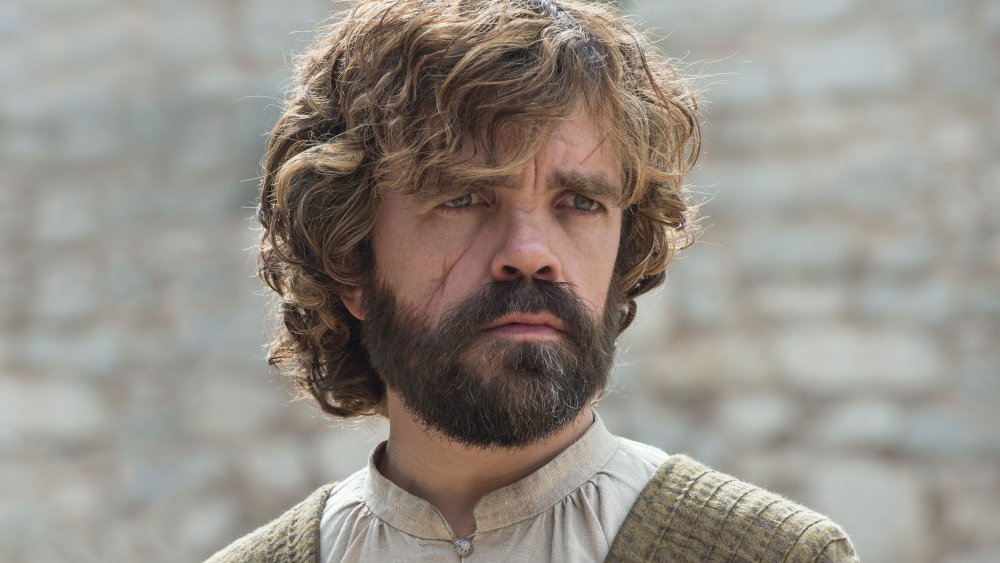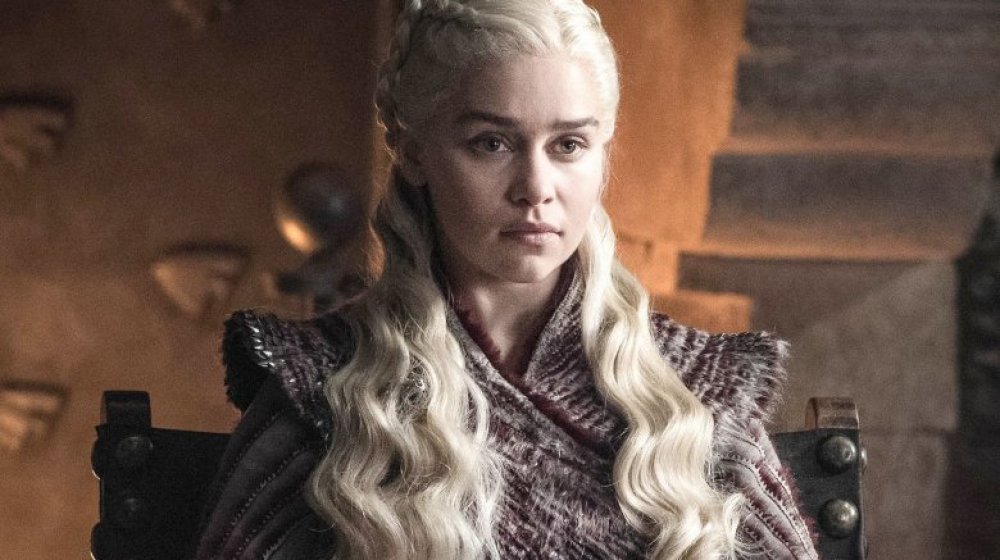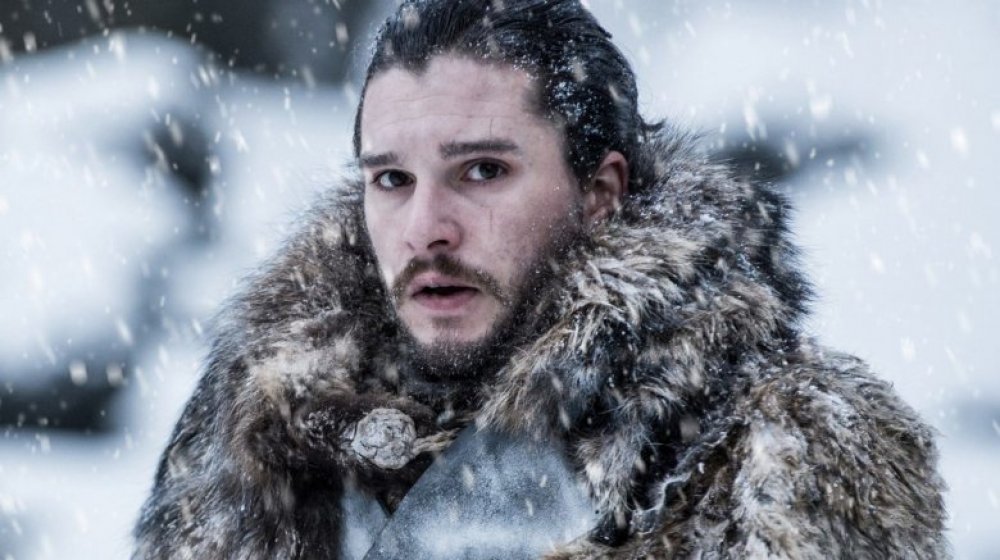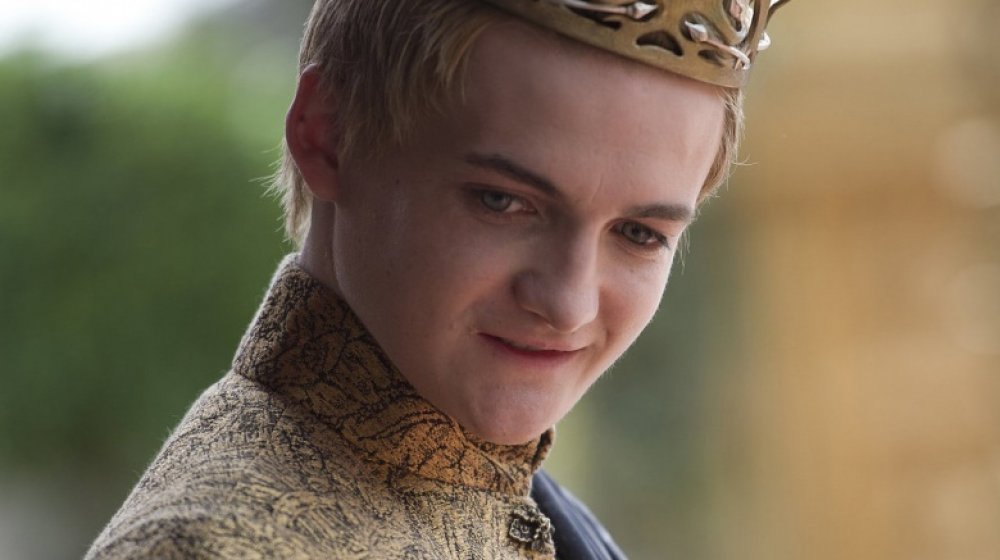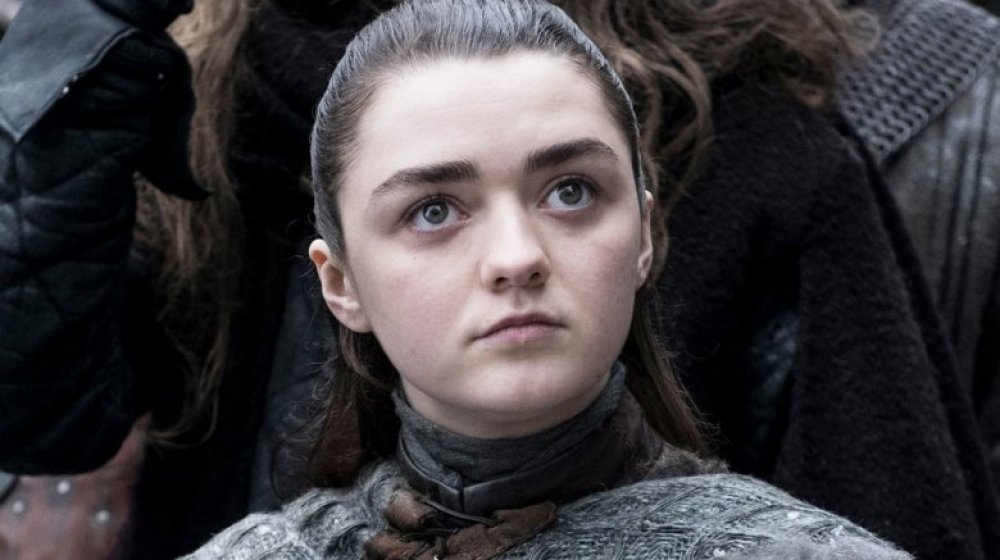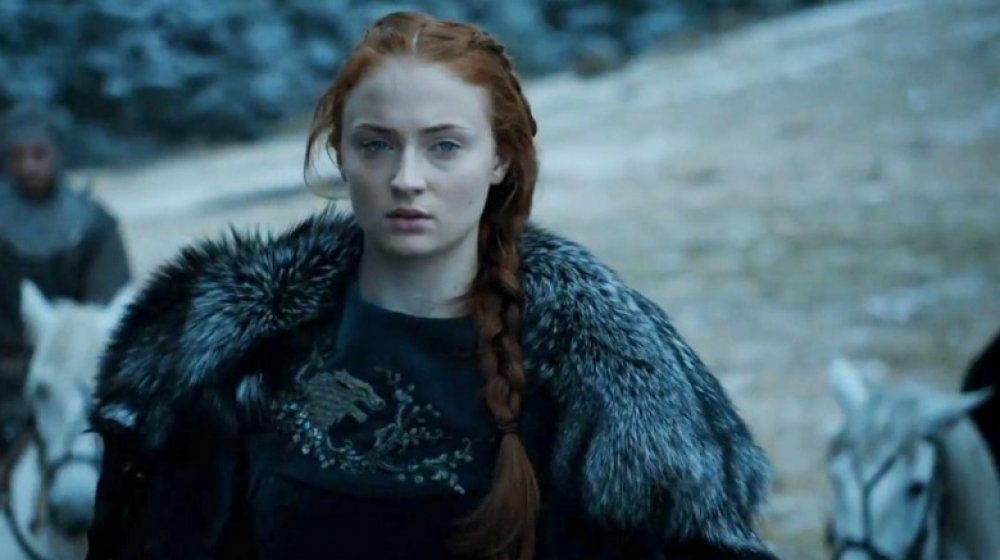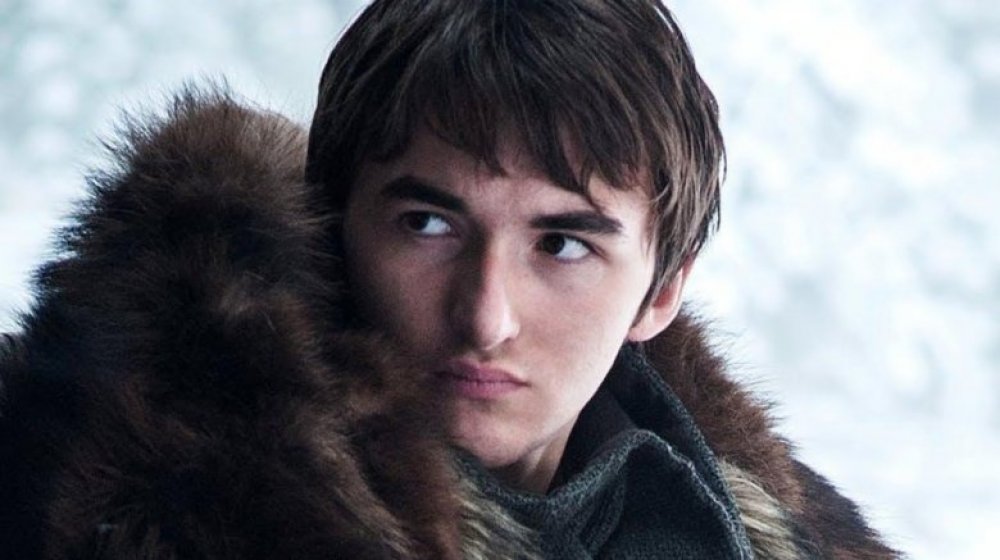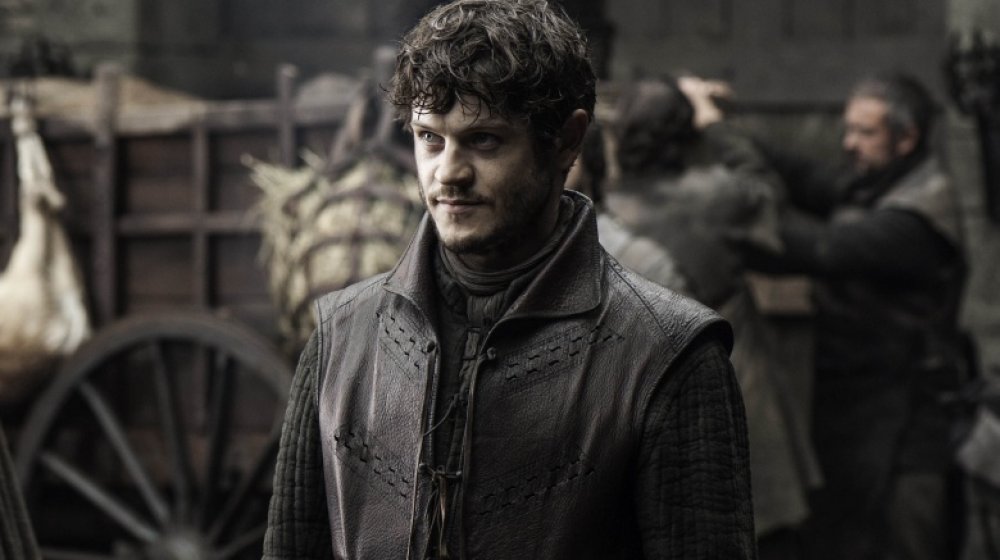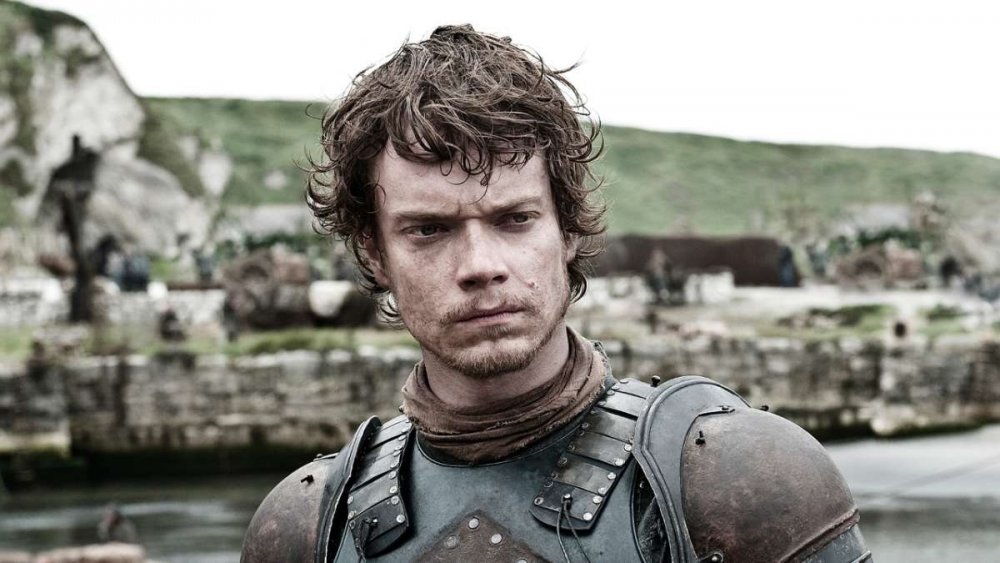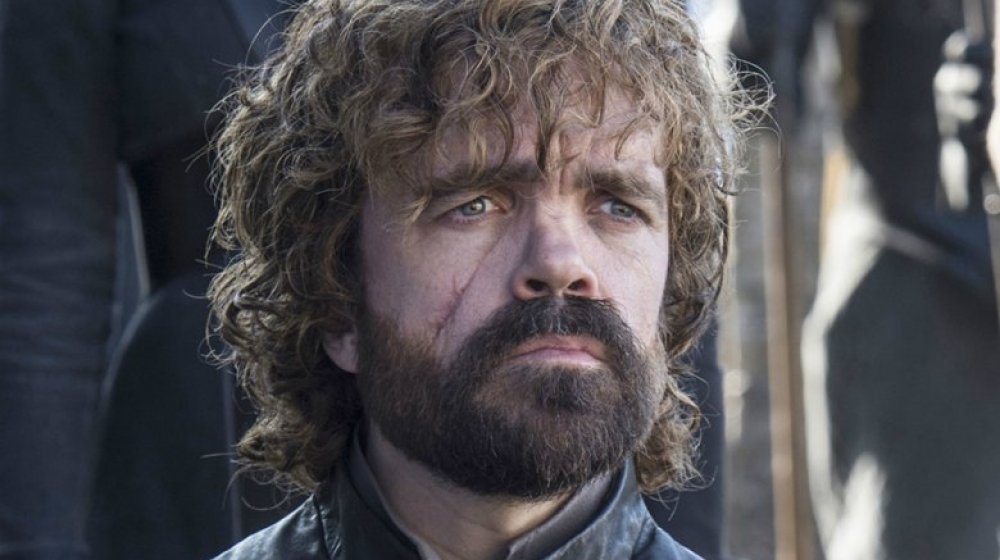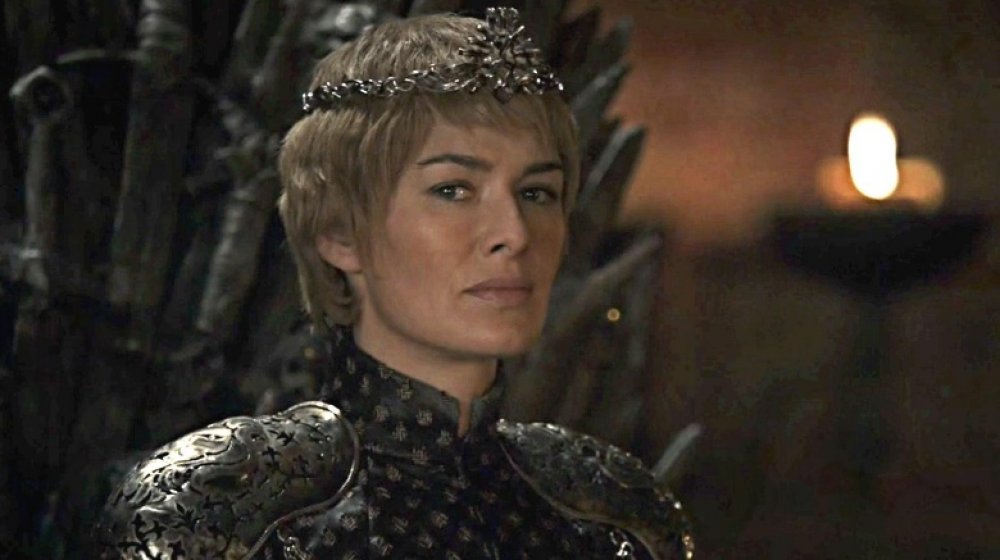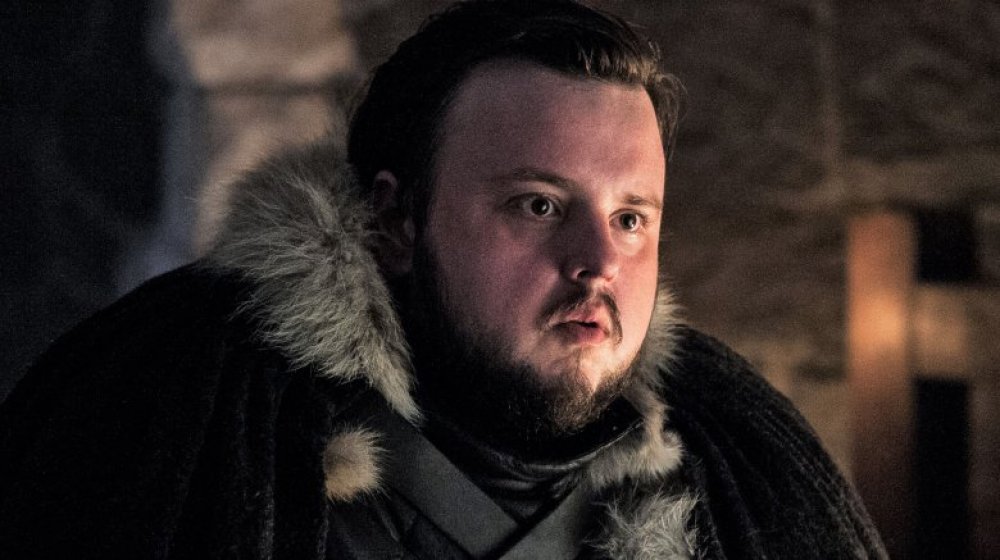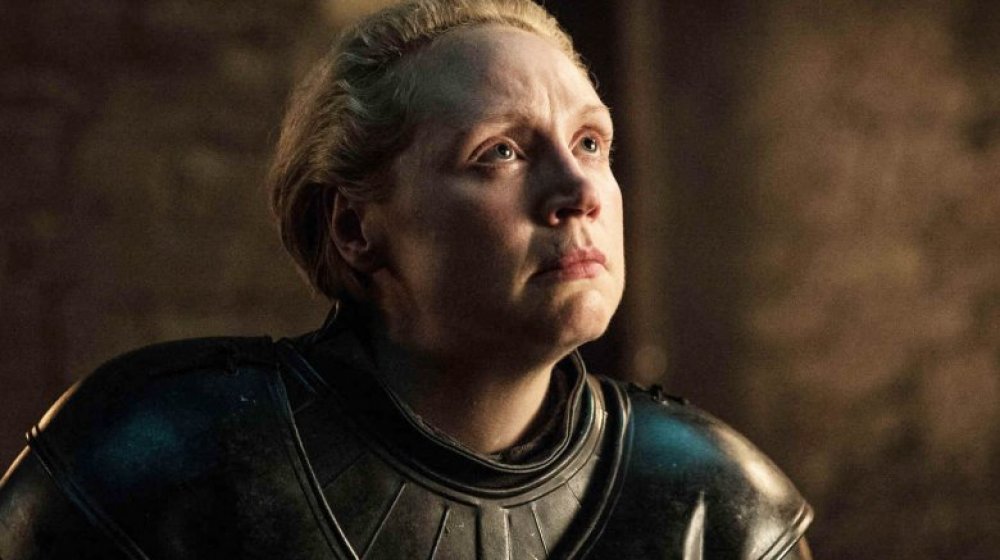Game Of Thrones Actors Who Were Never The Same After The Show
For eight seasons and nearly ten years, HBO's juggernaut fantasy series Game of Thrones dominated both the airwaves and cultural conversation across the world, catapulting its cast — many of whom were either children or relatively unknown at the show's start — to instant international stardom. Meteoric rises like these can certainly be lucrative and productive for a young or unknown actor looking to get a start in Hollywood, but they can also be pretty tough, and that's even without considering the content of Game of Thrones, a show that featured everything from torture to sexual violence to infanticide, among other horrors.
There's no denying that Game of Thrones created and boosted plenty of careers, but that came with a cost. For many of the actors who appeared on the show, they endured harrowing situations, paid emotional prices, and sometimes were left with long-term consequences. With that said, some of the show's actors were able to embrace their newfound stardom to their benefit. From the good to the bad, here's why these Game of Thrones actors were forever changed after the show came to a close in 2019. Spoilers to follow for the entire series!
Emilia Clarke struggled with Daenerys' denouement
Right at the beginning of Game of Thrones, audiences meet several major contenders who are simultaneously vying to take the Iron Throne (the ultimate seat of power within Westeros and the Seven Kingdoms), one of whom is Daenerys Targaryen (Emilia Clarke). As one of the only remaining members of the fallen, royal House of Targaryen, Daenerys will stop at nothing to take the throne, and once she gains the ultimate prize — specifically, three dragons — she embarks on a journey to the Seven Kingdoms, which turns out to be much tougher and bloodier than she ever anticipated. Though she sees herself as a fair and just ruler, Daenerys certainly has her faults. She can be punitive and quick to act, and her violent streak is pretty undeniable, considering how often she barbecues her enemies rather than engaging in basic diplomacy.
When Clarke read the show's second to last script, which features a now famously controversial sequence where Daenerys torches a city full of innocent victims at the drop of a hat, even she was shocked and disturbed, a feeling which only intensified once she realized she would die in the finale before ever taking the Iron Throne. Though Clarke has said she does indeed believe the finale made the right moves, it's not surprising that even she was blown away by Daenerys' literally explosive ending after so many years of playing the role.
Kit Harington had a harrowing experience on Game of Thrones
The alleged bastard of the high-ranking Stark family, Jon Snow (Kit Harington) is one of the most beleaguered members of the entire show, which is really saying something. The guy goes through hell and back throughout the series, often literally. Raised as a Northerner, Jon quickly joins the Night's Watch — the group of outcasts and exiled men sworn to protect the realm from the threat of the far North — but after a botched murder attempt at the hands of his own men, he finds himself in an unlikely leadership position back in Westeros.
After retaking his family home, Winterfell, from the tyrannical Bolton clan, Jon strikes up a romantic relationship with Daenerys Targaryen, only to discover that she's actually his aunt and that his claim to the throne is actually better than hers. And considering how hellbent Daenerys is on taking her throne, this is a pretty unpleasant revelation on several levels. Jon ends the show exiled once again after killing Daenerys, but ultimately, that's the happiest finale he could've hoped for.
As one of the younger actors catapulted to stardom, Harington had a rough time throughout Thrones. After the fifth season, which saw Jon Snow apparently murdered by his own men, Harington was forced to lie to everyone (which led him to seek professional help). On top of that, filming the Battle of the Bastards took a major toll on Harington, the show coming to an end left him incredibly emotional, and after the series finally closed, the man had to go to rehab for "personal issues." In other words, Harington had a tough experience on the show, despite the fame it brought him.
Jack Gleeson forged a new path
The Game of Thrones universe features plenty of horrifying villains, but few are more formidable and disturbing than Joffrey Baratheon (Jack Gleeson), the gleefully violent and vindictive heir to the Iron Throne who's actually the product of incest between his mother and her twin brother, both of whom are Lannisters (a cunning and conniving house of Westeros). During the first four seasons of Thrones, Joffrey leaves an indelible and disturbing mark on the show, especially after taking the throne at the end of the show's debut season. From publicly executing Ned Stark (Sean Bean) to tormenting his bride-to-be, Sansa Stark (Sophie Turner), Joffrey is truly Thrones' first sociopath, and though he wasn't its last, viewers were pretty relieved when he met one of the series' most disgusting and gruesome ends during his own wedding in season four.
Joffrey may have been one of the show's most despised characters, but Gleeson was beloved on set. In fact, Turner told Vanity Fair in 2014 that Gleeson was "the nicest actor on the show probably," and that "he is so not like his character; he is the polar opposite, and everybody adores him. Everyone." In the end, however, Gleeson quit acting to attend school, saying that acting was only a hobby. After an intense role like Joffrey, it was probably best for Gleeson to take a step back from performing full-time.
Maisie Williams struggled with her body image
British actress Maisie Williams was just 14 years old when she joined the cast of Game of Thrones as inimitable tomboy Arya Stark, the youngest daughter of House Stark who's desperate to pick up a sword and become an esteemed fighter like her father and brothers. In a way, she gets her wish. After her father's public execution at the hands of Joffrey Baratheon and time spent on the run, something snaps within Arya. Fueled by her "kill list," which she whispers to herself every night before she goes to sleep, Arya travels across Westeros and beyond to Braavos to become a faceless assassin, eventually returning home to aid her family, protect the stronghold of Winterfell, and even kill the sinister, seemingly invincible Night King.
A fan favorite character, Arya is tough as nails and an inspiration to young girls and women everywhere, but unfortunately, it seems that playing her took a toll on Williams. In an interview with Teen Vogue, Williams said that during the show's second and third seasons, as she started to grow up, the series made her incredibly self-conscious, especially since Arya was disguised as a boy. As she explained, "I don't know, that just felt horrible for six months of the year, and I felt kind of ashamed for awhile." Growing up is hard enough without being watched by international audiences, and the experience was clearly tough for Williams.
Sophie Turner's depression deepened during Game of Thrones
Sansa Stark, as played by Sophie Turner, experiences one of the most dramatic transformations in all of Game of Thrones throughout the show's eight seasons. Despite the fact that she begins the series as one of its most grating and irritating characters, she grows into one of its toughest and most beloved figures. She evolves from a young, whiny, and self-centered girl into a self-assured, steely, and smart survivor, escaping dangerous men left and right and besting them at every turn to eventually become a fervent defender of the North (and eventually, its queen).
Sansa might be incredibly strong, but Turner has exhibited a playful and funny presence on social media and in interviews, peppering the final season of Thrones with color commentary on Instagram. But as it turns out, she didn't always feel as bubbly and funny as she seemed. As the final season aired, Turner admitted that she suffered from debilitating depression during her tenure on Thrones, and that the show itself didn't help, saying that online criticism regarding her looks, skin, character, and acting ability really got to her. Luckily, Turner had plenty of mental health resources available, and perhaps opening up about her own struggles can help her fans who may feel as helpless as she once did.
Isaac Hempstead-Wright's college experience was ruined
Game of Thrones is a show that features plenty of twists and turns, and as the show begins, there's no turn more surprising than the attempted murder of a young Bran Stark (Isaac Hempstead-Wright) after he catches the royal Lannister twins in a seriously compromising position. Confined to a wheelchair for the rest of the show, Bran soon learns that he has an enormous role to play in the future of the Seven Kingdoms. After he becomes the all-knowing Three-Eyed Raven, the new Bran (who, incidentally, gains a vacant, weird persona with his omniscience) has the power to see all of Westeros' history and its future, but even then, he still has a bigger destiny. By the end of the show, to everyone's surprise, Bran ends up crowned the new king of Westeros, officially named "Bran the Broken."
Hempstead-Wright had one of the less flashy roles on the show (despite the fact that he ends up ruling the entire realm), but even so, Game of Thrones ended up completely ruining his collegiate experience. Hempstead-Wright enrolled at Birmingham University in the United Kingdom in 2017, but attention from other students made his life impossible. As he told Esquire, "I knew people would be excited, and there'd be a bit of fuss. But I could not anticipate the chaos." After a while, his fellow students and the tabloids alike tracked down his address and tailed him constantly, and he ended up leaving school for good.
Iwan Rheon was horrified by his own character
From dismembering women with dogs to prolonged torture, Ramsay Bolton (Iwan Rheon) is a guy who leaves no sociopathic stone unturned, taking great pleasure in every bit of pain he can inflict upon others. Thankfully, much like Joffrey, Ramsay eventually gets his just desserts. After the Battle of the Bastards, where Ramsay comes head to head with Jon Snow, the Stark family finally takes Winterfell back from the Bolton forces, and Sansa Stark, one of Ramsay's victims, feeds the bloodied, beaten Bolton to his own hungry hounds.
As it turns out, even Rheon found his character absolutely horrifying. In an interview with GQ after Ramsay's demise, Rheon said he was thrilled that his character didn't win control of the North, and he went into detail about how awful it was for both him and Turner to shoot a scene that depicted their wedding night, where Ramsay brutalizes Sansa. Ultimately, he said that though he would miss the show, he definitely wouldn't miss spending time in Ramsay's twisted, horrible mind, which likely took an intense toll on the young actor.
Alfie Allen wasn't the same after playing Theon Greyjoy
In terms of harrowing Game of Thrones journeys, few characters have a rougher go of it than Theon Greyjoy, as played by Alfie Allen. Despite the fact that he begins the show as an arrogant and selfish ward of the Stark family, Theon is quickly knocked off his pedestal by Ramsay Bolton. After getting captured by Bolton forces, Theon endures months of horrible, hyper-violent torture at Ramsay's hands, and even though he eventually escapes, he's obviously never the same again.
With that in mind, it makes sense that Allen was also never quite the same after the show, especially since so many of his scenes found him playing not Theon but "Reek," Theon's captive, broken persona who doesn't even remember his real name. Allen told Elle that he watched a lot of equally disturbing films to prepare for those scenes, including Quentin Tarantino's Reservoir Dogs, and in the end, playing a character suffering from PTSD took an enormous toll on him psychologically. As he explained, "My prep for the torture scenes is all in the mind." If Theon's torture scenes were tough to watch, it's even worse to imagine how rough it was for Allen to allow them to consume his thoughts throughout the process.
Peter Dinklage rose to undeniable stardom
Many Game of Thrones actors have opened up about their difficult experiences on the show, but some actors, like Peter Dinklage, saw their lives and careers changed for the better. Dinklage was already a fairly well-known actor by the time he started on Thrones, thanks to leading roles in films like The Station Agent and cameos in mainstream movies like Will Ferrell's Elf, but throughout eight seasons as Tyrion Lannister, Dinklage saw his star rise to astronomical heights.
For nearly ten years, Dinklage became one of the most recognizable faces in pop culture thanks to his now career-defining role as Tyrion Lannister, the "half-man" and least loved member of the haughty, power-hungry Lannister family. Despite an often callous nature and self-serving attitude, Tyrion is truly the heart and soul of the show, thanks to Dinklage's powerhouse performance that sees Tyrion rise and fall multiple times. This difficult character would never have succeeded on screen without Dinklage, and ultimately, he was rewarded for his considerable efforts. In 2019, Dinklage won his fourth Emmy for Best Supporting Actor in a Drama for the role, which also set a record for the most Emmys ever won in that specific category. Dinklage was already well-regarded before Thrones, but thanks to the show, he's now a bona fide star.
Lena Headey regrets her Game of Thrones ending
Game of Thrones is full of characters who are caught between good and evil, and no character embodies this more than Cersei Lannister (Lena Headey), the deliciously demented daughter of the Lannister family who will stop at absolutely nothing to maintain control of King's Landing (the capital city of Westeros) and, consequently, the Iron Throne. Over eight seasons, Cersei commits plenty of despicable acts, murdering and conquering with only one goal in mind, but in more traumatic moments — of which there are plenty, considering all three of her children die throughout the series — it's possible to actually feel sympathy for a woman who seems to be the devil.
With that in mind, it seemed inevitable that Cersei would get a show-stopping ending as the show came to a close, but that didn't end up happening. After a season spent on the sidelines, Cersei is simply crushed to death in the rubble of King's Landing's fortress with her twin brother and lover, Jaime Lannister (Nikolaj Coster-Waldau). Viewers were plenty disappointed at this total fizzle of a finish for Cersei, and as it turns out, Headey was too. In an interview with The Guardian, she confessed that, after ten years as the character, she was hoping for a much better ending than she got, even saying that she was "kind of gutted." After spending so long with Cersei, it's understandable that Headey was left cold by her character's lackluster climax.
John Bradley felt better about his looks
The world of Game of Thrones was populated with plenty of fighters and warriors, but to provide balance, it also needed scholars and healers, a dual role often filled by the meek yet lovable Samwell Tarly (John Bradley). Sam starts the show as a new Night's Watch recruit alongside his eventual best friend Jon Snow, and though he proves that he can fight when necessary — he even slays a White Walker to protect Gilly (Hannah Murray) — he prefers to study the history of Westeros and uncover vital facts, many of which provide crucial help to other characters in need.
Sam earned the audience's affection over eight seasons thanks to his endearing, caring nature, and as it turns out, playing Sam helped Bradley get over his self-esteem issues as well. During an interview with Conan O'Brien, Bradley confessed that he always struggled with his weight, but thanks to the positive attention he received for Thrones, as well the fact that he, above others, was chosen for this once in a lifetime opportunity, he learned to love himself. Happy endings aren't exactly a dime a dozen on Game of Thrones, and considering that Sam ended up in a good place (as a learned Grandmaster on King Bran's Small Council), it's heartening to hear that Bradley did the same.
Gwendoline Christie became a real-life fighter
Game of Thrones didn't always treat its female characters particularly well, but it also provided some of the strongest women in all of television during its ten year run, one of whom was Brienne of Tarth. Played by the formidably tall Gwendoline Christie, Brienne of Tarth is as good of a fighter as anyone else in Westeros — if not better — and she's constantly trying to prove her worth as a warrior. And eventually, she gets her due. During the final season of Thrones, Brienne is named the first-ever female Knight of the Seven Kingdoms in an incredibly moving sequence, and by the end of the show, she becomes the first ever female leader of the Kingsguard.
In real life, Christie became just as strong as her on-screen character, especially when it came to Thrones' final Emmys season. Despite her powerful performance in the eighth season, HBO didn't submit Christie for an Emmy, so she decided to do it herself, which resulted in an Emmy nod for Outstanding Supporting Actress. As she told The Hollywood Reporter, it was an important step for her to take, both as herself and for Brienne. As she explained, "We can empower ourselves by putting ourselves forward for something we never believe is going to happen."
